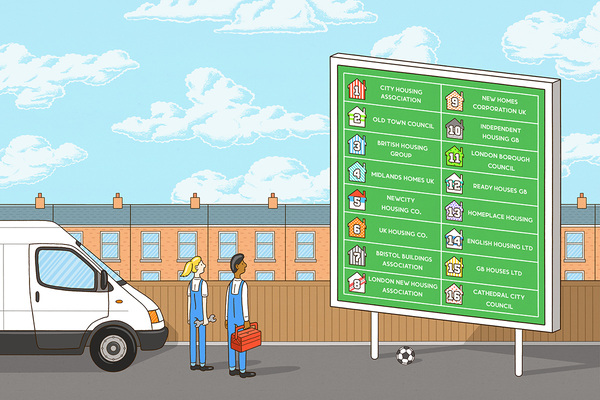You are viewing 1 of your 1 free articles
Housing Ombudsman begins publishing reports on all investigations
The Housing Ombudsman has begun publishing reports on all its investigations, naming the landlord involved.

The sector’s complaints arbitration service yesterday released its first batch of decision summaries, providing details of the issue and its findings.
Ombudsman boss Richard Blakeway called the move “a crucial step towards greater transparency”.
Until as recently as September, the Housing Ombudsman released very little information about its engagement with individual landlords.
It has since named providers frequently found at fault in thematic reports, and in December published new performance data reports for every member of its scheme.
Among the 16 first decisions published are cases involving Notting Hill Genesis, Metropolitan Thames Valley, Peabody and Birmingham City Council.
Issues covered range from Right to Buy to repairs, anti-social behaviour and complaints handling.
“This initial group of decisions provide lessons for service improvement, particularly in the way landlords deal with cases of anti-social behaviour, as well as highlighting a number of common complaint handling issues including poor record keeping, delays in responding and the lack of clear and timely communication,” the ombudsman said.
They are based on decisions issued in early December 2020, as the ombudsman’s policy is to publish three months after the decision date.
New decision reports will be published fortnightly outlining the 2,000-plus formal investigations carried out by the ombudsman each year.
Mr Blakeway said: “This is a crucial step towards greater transparency, accountability and demonstrating the difference complaints can make.
“The cases published today show the wide range of issues we handle, and the different outcomes we reach, investigating in an independent, fair and impartial way.
“Our investigations are a critical tool for learning. Our casebook provides essential knowledge, helping landlords to improve performance and services.
“I would encourage landlord staff – whether a board member or frontline staff – and anyone who cares about achieving excellence to regularly consult our casebook to develop their organisation and improve the experiences of residents.
“The publication of our investigations is also important to help residents to understand our work and see the decisions we make about their landlord.”
Sign up for our tenancy management newsletter
Already have an account? Click here to manage your newsletters











